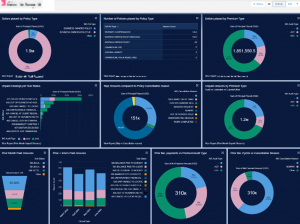Introduction
To sue, or not to sue? That is the question.
The odds are stacking up against corporate America when it comes to collecting past due accounts.
Is civil litigation worth your time?
Jim Cramer, a CNBC host of Mad Money, often states that the cost of civil litigation in the U.S. is 2% of the annual Gross National Product.
Many states have reduced a large portion of their courts’ operating budgets. Cities like San Francisco are predicting it could take up to five years to get a civil case to trial. Other California jurisdictions are not so crunched, but due to the backlog, courts are requiring mediation and settlement conferences before trial dates can be set.
According to Joseph Hampton, shareholder lawyer in the office of Betts, Patterson & Mines, P.S., “Courts want insureds to win coverage disputes. Courts around the country apply the rule of ‘contra proferentem,’ interpreting any ambiguity in a contract against the person drafting it. Because insurance companies prepare policies, this rule applies.”
What is the result?
The advantage is shifting to the debtor. Often debtors invite and use litigation as a means to an end.
They know through their attorney that if litigation is pursued, there are options and tactics they can use to their advantage.
When is litigation the answer?
Before approaching suit, make sure your collection agency or attorney completes a thorough asset investigation and provides you with a complete history of the debtor’s payment trend and nature.
The report should include:
- State and federal tax lien information
- Pending litigation
- Bankruptcy information
- Unsatisfied judgments already in place
- Other collection actions being taken
- Secured creditor information
- Payment trends for the last six quarters
- Who they are paying and not paying
Additionally, review the collection notes on the case checking for dispute information not addressed.
Be sure to have them check the court costs in the jurisdiction where the suit will be filed.
Conclusion
Is the court backlogged? Do they require a company witness in person and for which proceedings? What are the costs associated to file suit? Is a countersuit possible? Are all contractual details and documents available? Is the company really in business?
Having this information will enable a fact-based decision increasing your odds for successful and profitable litigation.
Return on investment is the focus point. Losing money on litigation is not an option.





